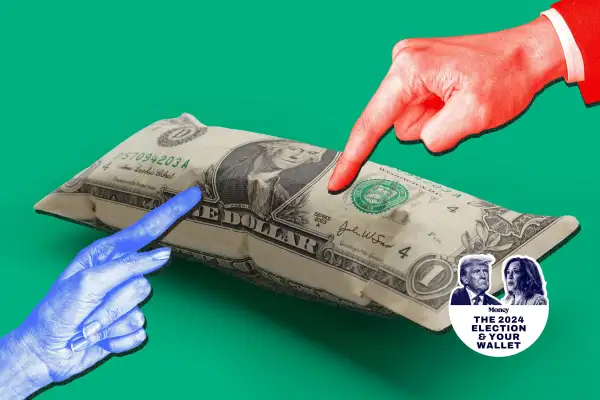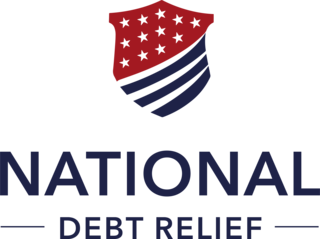Will Inflation Be Worse Under Trump or Harris? Here's What Economists Say

Although the current rate of inflation in the U.S. is roughly within normal bounds, it remains one of the greatest concerns for voters heading into the 2024 presidential election. But comparing the candidates' approaches to inflation — both in the past and in the future — is difficult.
On one hand, the Biden-Harris administration's record is abysmal if you simply measure it based on how much prices have risen since the day the duo took office. Cumulative inflation is about 20% since January 2021. This is considered one of Vice President Kamala Harris' greatest electoral weaknesses, especially because prices really started spiking the winter President Joe Biden was inaugurated.
On the other, policies have lasting effects long after a president leaves office. Many experts say former President Donald Trump's response to the pandemic — and the stimulus spending in that era — contributed to inflation and the economic challenges Biden has had to deal with.
So, who will be better for inflation moving forward? Despite 54% of voters saying in a recent Gallup poll that they favor Trump to lead the overall economy, most economists pick Harris.
In a new survey of 50 economists by the Wall Street Journal, 68% said inflation would be higher if Republican Trump's policies were to go into effect, while only 12% said it would be higher under Democrat Harris' plans. The other 20% said there would be no material difference.
The Journal cited Trump's proposed tariffs as a driver of the large gap between how economists predict the candidates would handle inflation. On the campaign trail, Trump has said he would enact a 60% tariff (tax) on some Chinese goods and a tariff on foreign goods in general of at least 10%. While tariffs could help some American manufacturers, they would likely lead to higher prices for everyday consumers.
In a separate panel of economists conducted by the University of Chicago Booth School of Business, 94% of respondents said they agree or strongly agree with the statement that "imposing tariffs results in a substantial portion of the tariffs being borne by consumers of the country that enacts the tariffs, through price increases."
Harris' inflation plans include initiatives to lower drug prices and curtail corporate "price gouging" that she blames for things like grocery inflation. That same panel of economists, however, generally agrees "there is little empirical evidence that price gouging is causing high grocery prices."
The inflation election question
Whether inflation will be worse under Trump or Harris is ultimately for voters to decide, and their choice will likely rest on who they blame for the last bout of increased prices.
Some of the questions voters are now asking — like who, exactly, is responsible for the latest inflation crisis, and who could prevent it from happening again? — bear similarities to age-old debates over economic responsibility in election years.
A semi-recent example is the 2012 election, when former President Barack Obama took heat for his economic record and the pace of the nation's recovery from the Great Recession in his first term. But his victory could be seen as an indication that many voters recognized that he inherited a poor economy from the previous president, George W. Bush.
Fast-forward to 2024, and despite many voters blaming Biden for the high prices they're facing, others seem to realize that his policies aren't the only reason they're paying $5 for eggs. The debate now is whether they'll be willing to look past the weak inflation stats from the past (almost) four years while choosing the country's next leader.
More from Money:
Best Credit Cards of October 2024
Americans Think Inflation Will Get Worse After the Election. Should We Be Worried?
The 9 Money Issues Voters Care Most About This Election, Ranked





